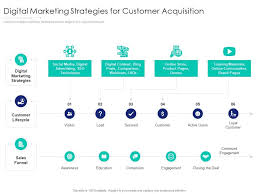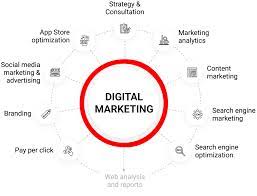The Importance of Online Reputation Management in Digital Marketing
In today’s digital age, online reputation management has become a crucial aspect of any successful digital marketing strategy. With the vast reach and influence of the internet, businesses must actively monitor and maintain their online reputation to ensure credibility, trust, and positive brand perception.
Building Trust and Credibility
Consumers rely heavily on online reviews, ratings, and feedback when making purchasing decisions. A strong online reputation can significantly impact a consumer’s perception of a brand and influence their buying behavior. By actively managing and responding to customer reviews and feedback, businesses can build trust and credibility with their target audience.
Enhancing Brand Image
Your online reputation is a reflection of your brand’s image. Positive reviews, testimonials, and mentions across various online platforms can enhance your brand’s image and differentiate you from competitors. Consistent monitoring and management of your online presence help maintain a positive brand perception among consumers.
Managing Crisis Situations
In the event of negative publicity or a crisis situation, effective online reputation management is crucial in mitigating damage to your brand. By promptly addressing negative feedback or addressing issues transparently, businesses can demonstrate accountability and professionalism, ultimately safeguarding their reputation.
Improving Search Engine Visibility
Online reviews and mentions play a significant role in search engine rankings. A positive online reputation can improve your visibility in search engine results pages (SERPs) and drive organic traffic to your website. By optimizing your online presence through strategic content creation and engagement with customers, you can boost your search engine rankings.
Conclusion
In conclusion, online reputation management is an integral part of digital marketing that directly impacts a business’s success. By actively monitoring, managing, and enhancing your online reputation, you can build trust with consumers, enhance your brand image, manage crisis situations effectively, and improve search engine visibility. Investing in online reputation management is essential for businesses looking to thrive in today’s competitive digital landscape.
Top 5 Essential Tips for Managing Your Online Reputation in Digital Marketing
- Monitor online mentions of your brand regularly.
- Respond promptly and professionally to both positive and negative feedback.
- Encourage satisfied customers to leave reviews and testimonials.
- Address any customer complaints or issues openly and transparently.
- Maintain a consistent brand voice and image across all online platforms.
Monitor online mentions of your brand regularly.
Monitoring online mentions of your brand regularly is a critical tip in online reputation management within digital marketing. By staying vigilant and actively tracking conversations, reviews, and feedback about your brand across various online platforms, you can quickly address any issues, respond to customer concerns, and capitalize on positive feedback. Regular monitoring allows you to maintain a proactive approach to managing your online reputation, ensuring that you can promptly address any emerging issues and maintain a positive brand image in the eyes of consumers.
Respond promptly and professionally to both positive and negative feedback.
In the realm of online reputation management in digital marketing, a crucial tip is to respond promptly and professionally to both positive and negative feedback. Acknowledging and engaging with positive feedback shows appreciation for customer support and helps foster brand loyalty. Similarly, addressing negative feedback in a timely and professional manner demonstrates accountability and a commitment to resolving issues, ultimately turning potential detractors into loyal advocates. By actively managing feedback across online platforms, businesses can effectively shape their online reputation and build stronger relationships with their audience.
Encourage satisfied customers to leave reviews and testimonials.
Encouraging satisfied customers to leave reviews and testimonials is a powerful strategy in online reputation management within digital marketing. By actively soliciting feedback from happy customers, businesses can amplify positive word-of-mouth and enhance their credibility and trustworthiness. Positive reviews and testimonials not only showcase a business’s strengths and quality of service but also influence potential customers’ purchasing decisions. Leveraging the voices of satisfied customers through reviews and testimonials can significantly boost a brand’s online reputation and foster a strong connection with its target audience.
Address any customer complaints or issues openly and transparently.
Addressing any customer complaints or issues openly and transparently is a fundamental tip in online reputation management within digital marketing. By acknowledging and responding to customer feedback promptly and honestly, businesses demonstrate accountability and a commitment to customer satisfaction. Transparency in addressing complaints not only helps resolve issues efficiently but also showcases a company’s dedication to maintaining a positive brand image and fostering trust with its audience. Embracing transparency in handling customer concerns can turn negative experiences into opportunities for building stronger relationships and enhancing overall brand reputation.
Maintain a consistent brand voice and image across all online platforms.
Maintaining a consistent brand voice and image across all online platforms is a fundamental tip in effective online reputation management within digital marketing. By ensuring that your brand’s messaging, tone, and visual identity remain cohesive across websites, social media channels, and review platforms, you create a unified and recognizable brand presence. Consistency fosters trust and credibility among your audience, reinforcing your brand’s values and positioning in the digital landscape. It also helps to establish a strong brand identity that resonates with consumers and sets you apart from competitors.




